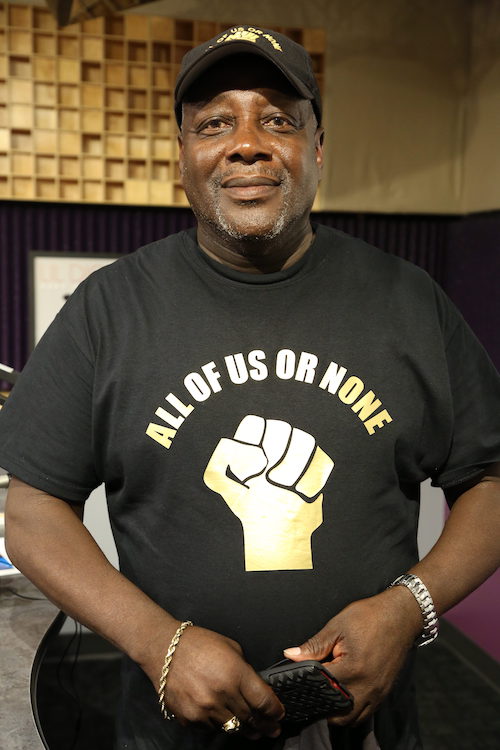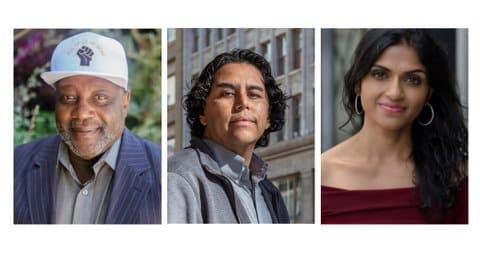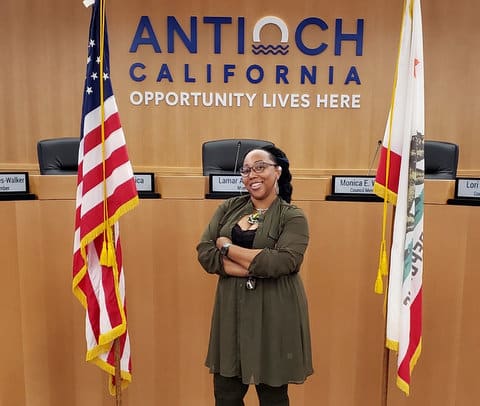
15 Sep Q&A: Dorsey Nunn on the Growing Power Base of the Formerly Incarcerated

Interview, Dr. Joseph Marshall
Editor’s Note: The first national conference of the Formerly Incarcerated and Convicted People and Families Movement was held in Oakland, Calif. on Sept 9-10. The movement works for the full restoration of civil and human rights for those who have been convicted by the criminal justice system.
Dr. Joseph Marshall, host of Street Soldiers on 106 KMEL radio, recently welcomed conference organizer Dorsey Nunn, executive director of All of Us or None, to discuss the conference, his work on the Ban the Box campaign and the need to include the voices of the formerly incarcerated in the national conversation about ending mass incarceration.
Dr. Joseph Marshall: I know you had a big week this past week. When I heard, I said, ‘Lets’ get him in here to talk about the work you’ve done.’
Dorsey Nunn: It wasn’t just a big week. It was a historic week. We had 500 people show up at the Hilton Hotel from 35 states and attached to us were prisoners striking in 25 states and in 40 institutions. It was the first national conference of the Formerly Incarcerated and Convicted People and Families Movement. So, it was the first time that we decided to have a conference and start actually talking about the full restoration of our civil rights.
JM: What were some of the main ideas being discussed?
DN: We started talking about all the pieces of the conversation that we don’t have access to. You know, we started talking about the hunt for the undeserving that allows people to kill us, and produce a conviction history faster than a personnel record. You know? We started talking about if they are filming these murders, we should have access to the videotape. We should have access to the release of the information, because if they’re gonna damage us, and damage our reputation after they kill us, then we should have access to that, and we should demand something that’s significant. Like, they shouldn’t be able to review the tape before they actually make a police statement.
We had a panel on marijuana, and the name of the panel was, ‘What about Pookie?’ Because, at a certain point, if we’re getting ready to legalize the cannabis industry, a multibillion dollar industry, should we exclude all of those people that we locked up? And should we exclude them to the extent that only the privileged few can actually sell marijuana in our communities and we don’t have access to the market, the capital?
We talked about our right to vote. Suppose we demand the right to hold public office. Voting rights are actually attached to a question of citizenship. So, at a certain point, when we ask them for the right to vote, we actually need to define what is a citizen in this country. We want the right to sit on a jury. We want the rights that attach to citizenship, and if we don’t have those things, what makes us a citizen of the United States if none of the things that we attach to citizenship apply to us?
We talked about Right to Carry laws. You know, if you’re black, you never have the right to carry a gun, you’re always seen as a thug.
We started talking about Ban the Box.
DM: Can you explain to people what Ban the Box is?
DN: It’s that question on a job application, ‘Have you ever been convicted of a felony?’ And you will see it in all kinds of places. It’s the bane of a black person’s existence like mine.
That question comes up in a different form when you go to apply for FAFSA when you’re getting ready to go to college. That question comes up when you’re looking to get public benefits on the TANF program. They’re not only asking you about your felony, they’re asking you about anybody’s felony in your household. When you get ready to transfer your wealth through life insurance, it comes up again. So all the way down the line, they’re asking you for this. When you go to vote, you can see the question on your application. But when we get to that question of banning the box, most people see it as an employment question.
It was a number of us that decided we would do something courageous for a change. We went and knocked on the doors of the Justice Department and said, ‘If y’all gonna discuss re‑entry, don’t you think you should talk to us? Don’t you think that we should have an opinion?’ We went in there, and we discussed the questions of employment, housing, education and voting rights. Out of those four things that we brought up, they moved on three of those items. So when we get to Oakland, we had the Assistant Attorney General of all programs within the federal government sitting in the audience.
JM: Most of the work has been getting government agencies to change how they are wording their applications. Is there a push to get private industry to change their policies on asking those questions and is the government involved with changing policies?
DN: I can start off with Starbucks, I can tell you about Target, about Bed, Bath and Beyond. I can tell about us launching campaigns where we are beginning to actually navigate that space. We are also talking about banning the box in philanthropy because we want to impact who gets hired and makes decisions when they give away millions of dollars in the community.
JM: Thank you man. You are just amazing.
DN: Now, the part that I really want to share with a lot of people, is suppose the active edge of your civil rights movement could look like somebody like me? Because most people think about what they can’t do. The people that I’m tied into think that we can change the world. What happens when we get out and look in the faces of people that haven’t served a day in prison, but already have broken spirits?
Our power base is growing, whether you know it or not. We’re pushing out seeds across the country.






No Comments